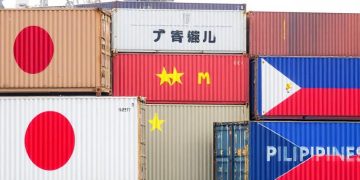Japanese Prime Minister Shigeru Ishiba departed on Sunday (April 27) for a four-day diplomatic trip to Vietnam and the Philippines. The visit aims to strengthen regional ties and address the impacts of U.S. President Donald Trump’s tariffs on Southeast Asia.
The trip follows a similar visit by Chinese President Xi Jinping to the region, with China positioning itself as a stable alternative to the U.S. amidst ongoing trade tensions. Prime Minister Ishiba emphasized the importance of Southeast Asia, calling it a “growth center” that is playing a crucial role in driving global economic growth. However, he acknowledged the challenges the region faces due to the U.S. tariffs, particularly on imports of cars, steel, and aluminum, which have affected Japanese businesses operating in the area.
In his pre-departure comments, Ishiba expressed Japan’s interest in listening to the concerns of Japanese companies in the region and using that feedback to inform Japan’s response to the U.S. tariffs. Japan has been impacted by Trump’s tariffs, with the country included in a blanket 10% levy on imports, although the U.S. president has temporarily paused the reciprocal duties on Japanese goods.
During the visit, Ishiba is also expected to discuss security matters, particularly the rising tensions in the East and South China Seas. Japan has expressed concerns over China’s increased territorial assertiveness in the region. Both Vietnam and the Philippines have been involved in territorial disputes with China in the South China Sea. Ishiba is expected to focus on strengthening security cooperation with both countries in response to China’s actions in these contested areas.
Explore the newest supply chain news at The Supply Chain Report. Visit ADAMftd.com for free international trade tools.
#JapanDiplomacy #TariffTalks #AsiaTradeRelations #VietnamJapanRelations #PhilippinesJapan #TradeNegotiations #RegionalEconomics















